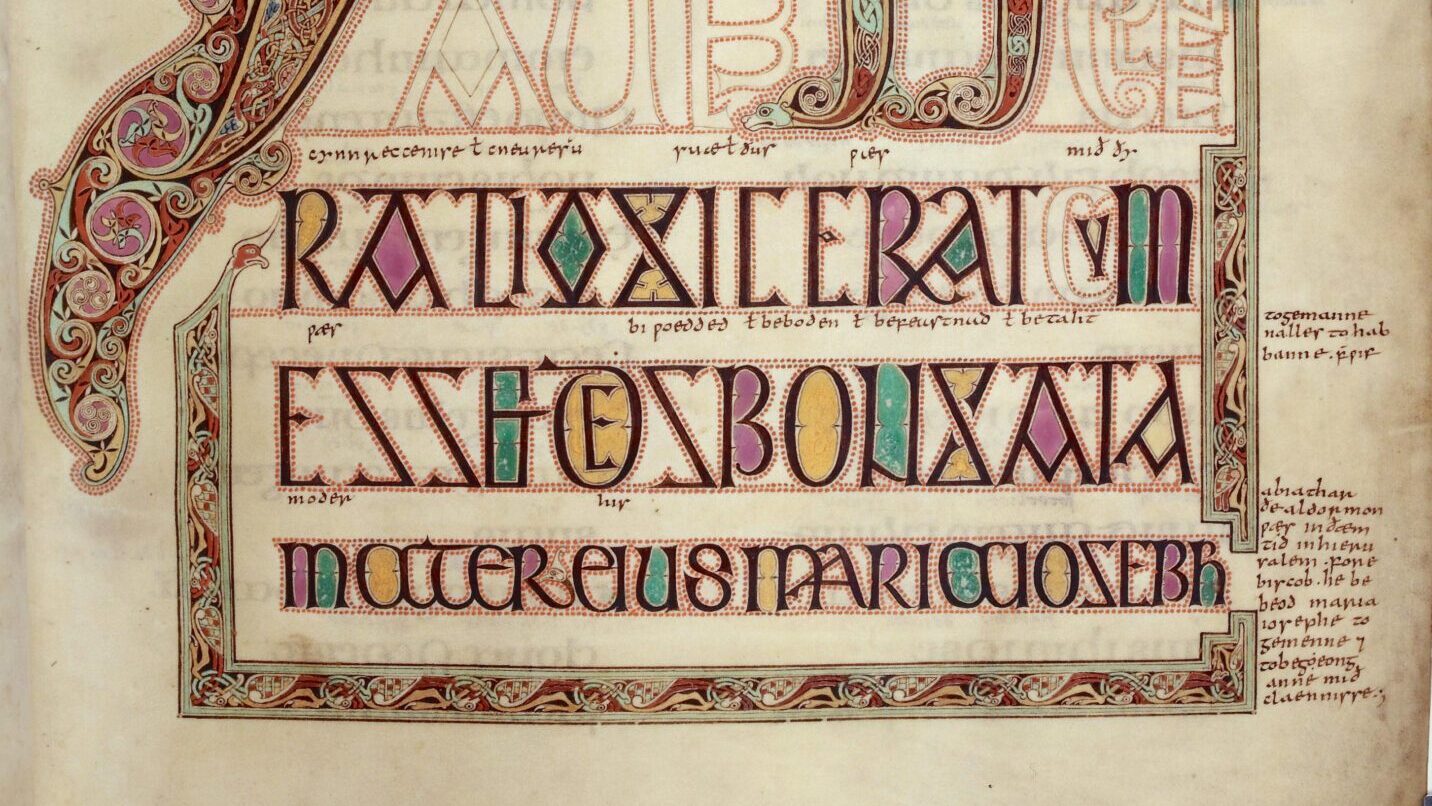
Page with Chi Rho monogram from the Gospel of Matthew in the Lindisfarne Gospels.
Eadfrith, Public domain, via Wikimedia Commons
A prestigious academic journal has been accused of caving to a “handful of mad Americans” after erasing the term “Anglo-Saxon” from its title.
Anglo-Saxon England, a journal published by the University of Cambridge since 1972, will now be known as Early Medieval England and Its Neighbours.
The university said the renaming represented the “international, interdisciplinary and rapidly evolving nature of research in this field,” but historian and author Dominic Sandbrook accused them of changing the title because they are “total drips” who “didn’t have the courage to say no to a handful of mad Americans.”
Be honest. You changed the title because you are total drips and didn’t have the courage to say no to a handful of mad Americans. https://t.co/OOKvdtENm5
— Dominic Sandbrook (@dcsandbrook) May 8, 2024
The Anglo-Saxons were a cultural group, descended from Germanic settlers, who inhabited England from the 5th century. They spoke Old English, the ancestor of the modern-day English language.
Writing in defence of the term, history writer Samuel Rubinstein, says:
The Anglo-Saxons appear to us as a benign link in the chain of Our Island Story: they come after The Romans, coincide with The Vikings, and abruptly transform into The Normans at Hastings in 1066. Peopled with colourful characters, it is an exciting, murky part of the story.
However, some academics, especially in the U.S., say “Anglo-Saxon” has racist overtones due to its use by a small number of white supremacists.
In 2019, the International Society of Anglo-Saxonists bowed to pressure and changed its name to the International Society for the Study of Early Medieval England. It claimed there were “problematic connotations” associated with the term.
The following year, more than 70 academics signed a statement arguing that the controversy was an American import. They wrote:
“The conditions in which the term is encountered, and how it is perceived, are very different in the USA from elsewhere. In the UK the period has been carefully presented and discussed in popular and successful documentaries and exhibitions over many years.”
Commenting on the Cambridge journal’s name change, David Abulafia, Professor Emeritus of Mediterranean History at Cambridge University, told the Telegraph:
“The journal should glory in its distinguished reputation rather than trying to reinvent itself under a bland new name dictated by a passing fashion for dropping the term Anglo-Saxon.”
